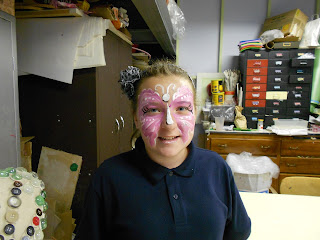Article rank
22 Sep 2011
Philadelphia Daily News
Page 43.
The benefits to your child of learning to play music
A humorous arts advocacy flyer from years ago commanded, “Expose yourself to art.” Its photograph showed from behind a bare-l egged museum visitor with his arms spread and trench coat flung open to Rodin’s “The Thinker.”
It’s good advice, especially f or children. The findings of many studies have reported links between children engaging in art — e. g., taking music lessons — and intellectual and emotional achievement.
In fact, one study reported that high school music students averaged 38 points higher i n verbal and 21 points higher i n math on the SAT. And a Rockefeller Foundation study found that undergraduate music majors have the highest rate of admission to medical school.
Those are some impressive young-adult accomplishments f or a weekly hour or so of tickling the ivories, bowing a fiddle, pounding the hides or blowing a horn as a child. Learning to play a musical instrument can confer upon your youngster advantages at school and with self-confidence, teamwork and physical development.
Schoolwork
Several studies have pointed to a link between children’s success i n school and l earning to play music. Piano lessons, f or example, help children sharpen their natural l earning processes. Because music is a language with individual elements sequencing and accruing into broader meaning, l earning to play an instrument can help your child develop skills needed to master language arts. Studies have shown that musical training physically develops the part of the brain known to be involved with processing language.
In addition, the bi-dexterity and multiple senses required to play a musical instrument engages both right and left brain interplay that stimulates neural development i n your child.
Learning music teaches children how to stay focused and to set and achieve goals. When l earning to play a piece, your child sets specific goals and then works to fulfill them. Each new piece of music demands a specific set of skills and playing habits. When interpreting music, your child studies each note while anticipating the score’s next few bars. This employed critical thinking and creativity can be transferred to other academic and life pursuits.
Self confidence
Learning to play an instrument allows your child to encounter and overcome challenge. By mastering an instrument with which your child was initially awkward and creating music, he experiences the elation of accomplishment. Self-confidence rises along with the belief that obstacles, with persistence and through incremental, small steps, can be surmounted ( a critical life lesson).
Self-confidence also comes from preparation, performance in front of an audience and pressure. Weekly lessons instill the idea of persistence and improvement. Dealing with the anxiety of completing a piece f or an audience teaches your child how to handle the stress of expectation ( and remain creative under pressure). Music performance teaches your child to conquer f ear and take risks.
Teamwork and craftsmanship starting with an engaging instructor, your child learns to collaborate. If he joins the school’s orchestra or even a neighborhood garage band, your child will start to l earn how to pool resources with others and cooperate toward a common goal. Developing this soft skill for teamwork is essential to just about every professional pursuit. Another essential soft skill your child develops when l earning to play an instrument is craftsmanship. Studying notes, assembling them into a whole, and recognizing the difference between good and mediocre output instills in your child a sense of discipline, an inclination to excel and the capability to extend creativity. By learning to play music, your child l earns the value of perseverance to achieve excellence and attains the concrete rewards of concentrated effort.
Fine motor skills because l earning to play music is an action to do and not an event to watch, your child should develop enhanced fine motor skills. On a purely physical level, your child can l earn to fine tune the use of his hands and other body parts through music lessons. Employing the physical and mental dexterity required to master an instrument, your child will develop essential coordination f or adulthood.
Research an in-depth Harvard University study i n 1993 found evidence that spatial-temporal reasoning improves when children l earn to make music. Although controversial still, this Mozart effect has motivated plenty of parents to expose their very young children to music.
A small 2006 Canadian study from Mcmaster University reported that music lessons can help children as young as four demonstrate advanced brain development and improve their memory. The study’s lead, Laurel Trainor, said, " Our study and other studies show that music has benefits … f or cognitive processing and cognitive development."
By exposing your child to music lessons, you can help him work toward mastering higher academic achievement, self-confidence, teamwork and discipline. Along the way, you might even get serenaded with “Fur Elise” and “Free Bird.”









































